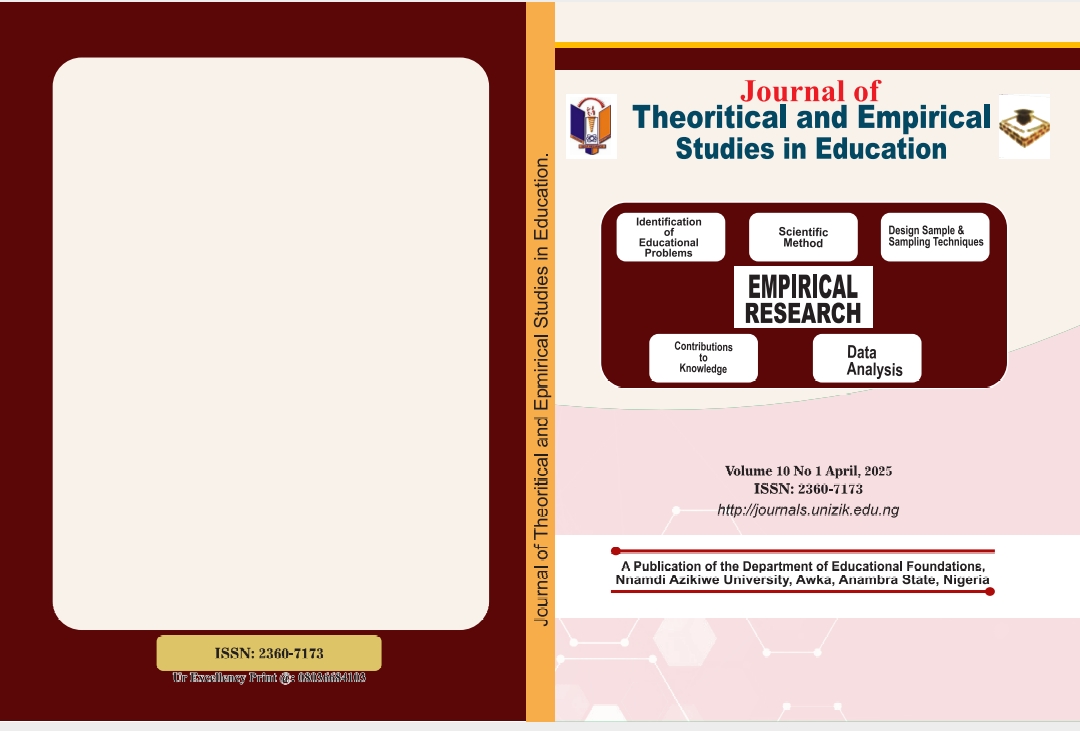PSYCHOLOGICAL BARRIERS TO ETHICAL TRANSFORMATION IN AFRICAN EDUCATION SYSTEMS
Keywords:
Ethical transformation, Cognitive dissonance, Cultural biases, Change, historical trauma, Empowerment.Abstract
The African education system, shaped by colonial legacies, socio-cultural influences, and historical traumas, faces significant psychological barriers that hinder ethical transformation. These barriers - such as cognitive dissonance, cultural biases, fear of change, historical trauma, and lack of empowerment - pose considerable challenges to the creation of an education system that fosters fairness, social justice, and inclusivity. Cognitive dissonance often arises when educators and students are confronted with ethical shifts that conflict with long-held beliefs and practices. Cultural biases, deeply embedded in both the educational content and
delivery, perpetuate unequal opportunities and hinder the adoption of progressive ethical standards. Additionally, the lingering psychological effects of colonialism and other historical injustices create emotional and mental barriers to embracing
educational reforms. This paper explores these psychological barriers and their implications for ethical transformation in African education systems. Drawing on existing literature and educational theories, it discusses potential solutions,
including the promotion of critical pedagogy, culturally relevant curricula, community engagement, teacher empowerment, and mental health support. By addressing these psychological challenges, African education systems can pave the way for a more ethical, inclusive, and socially just educational environment.




